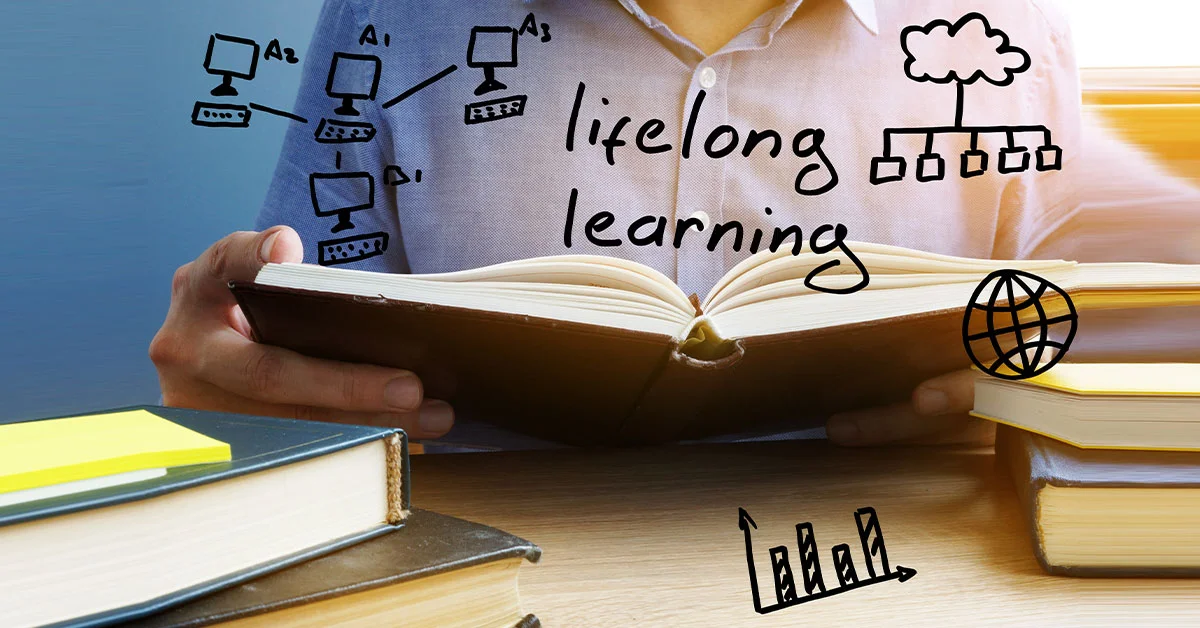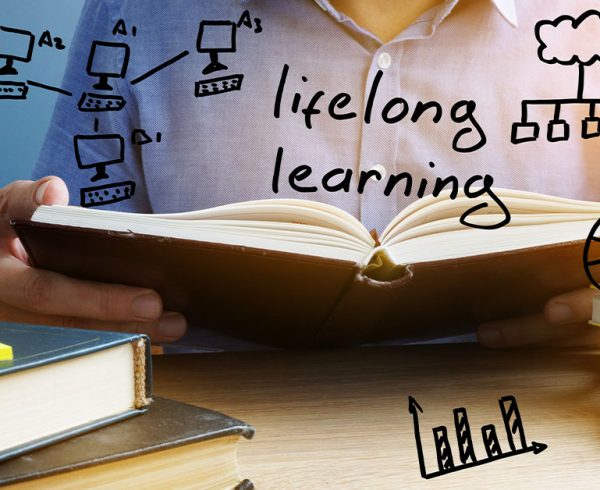The need for lifelong learning
The last few decades have seen the learner evolve into the current Gen Z or iGen learner, and the learning process itself has undergone a lot of change – from a very linear and one-dimensional approach, which was fairly formal and assumed to last us a lifetime, to a very social, informal way of learning. Today, the shelf life of knowledge/information, and therefore our skills, has reduced considerably and so learning has to be continual, making the benefits of lifelong learning even more important. Thus developed the concept of lifelong learning.
The talent marketplace today - the future of work
Traditionally, learning is associated with formal education at school, college, or university. Formal education and the resulting qualifications are important to get a good career start; however, acquiring new skills and reskilling to meet the current market demand and maximizing opportunities, is as important!
Businesses today are preparing for jobs that don’t exist. The talent needs of an organization are changing. The gig economy and the increasing skills gap have had a severe impact on the talent marketplace.
Not only is it hard to attract and source quality talent, but it is also difficult to keep them engaged for a reasonable tenure while controlling costs.
Increased digitization and globalization have led to extreme flexibility when it comes to hiring new talent. Having only a set of skills is no longer enough as companies prefer part-time, project-based, independent resources or freelancers more than ever before. The focus is shifting from qualification-based to skills-based jobs.
So, what are the traits of the future worker?
Undoubtedly, the jobs of the future will be defined by new tools, including AI, AR/VR, Big data, IoT, and the like, which in turn necessitates the skilling and reskilling of the workforce on these new and emergent technologies. However, what would also be crucial for people participating in the future of work is to know how to collaborate with these new artificially intelligent and automated systems. Their attitudes, behaviors, and most importantly their mindset and ability to adapt to change will set them apart from the automated systems.
Emotional and Artificial Intelligence will be at duel
Additionally, a thorough understanding of the domain in which the functional expertise is being applied, through the lens of emerging trends & technologies, would be incredibly valuable as more and more organizations will look for talent who can understand and solve their business problems. The need would be to build teams with domain expertise – people who can speak the domain language, ask relevant questions, and understand the business goals completely.
At Hurix, we look at the future worker to have a T-shaped personality, with deep skilling in the specific area of expertise overlaid with domain expertise on one hand and the other, the right-brained abilities to think creatively and be emotionally intelligent enough to adapt to an ever-changing world.
Is it only professional though?
Lifelong learning is not just for a professional uplift; it enhances the learners’ understanding of the world around them, provides more and better opportunities, and improves the quality of life.
- Lifelong learning is a process of gaining knowledge and new skills throughout life for personal or professional fulfillment
- Lifelong learning helps create a positive attitude to learning both for personal and professional development
- Lifelong learning can be formal or informal, directed or self-paced
- Lifelong learning can also be indirect – through conversations, unexpected lessons learned, relationships, and even travel
Advantages of lifelong learning
Helps discover new interests
Learning new skills can open up new opportunities and possibilities. Learners may develop an interest in an area that they never explored before. Continuous learning fuels creativity and innovation, helping learners use their knowledge and skills in meaningful ways.
Builds confidence through mastery
Lifelong learning is mostly a voluntary initiative taken by the learner. The willingness to learn something new and excel at it is what makes learning effective. Pursuing a course, a new skill, or a hobby willingly encourages them to not only complete the course but also master it.
Helps learn practical skills
The mandatory courses and learning programs aside, lifelong learning teaches us practical skills. A school or college does not teach learners about every skill required in life. However, there are online platforms that offer a range of courses across subjects such as business, arts, health, personal development, and more. Concepts such as taxes, handling finances, or improving communication skills, computer skills, etc., can be learned through such online mediums.
Improves chances for job mobility
Job mobility is one of the main factors that influence learners to continue learning. Equipping oneself with new technologies and the latest skills sought by the job market improves the chances of getting better job opportunities. Engaging in lifelong learning helps learners stay competitive in the labor market.
Improves adaptability
Learning something new might seem like a challenge at first. However, post the academic years, learners will always have to upskill themselves with the latest skills and software. Incorporating a culture of lifelong learning at educational institutions will acclimate the learners to adapt to new technologies easily. It will increase their confidence to adopt new skills.
In conclusion
Lifelong learning is not a concept that can be enforced upon learners. But, it can be encouraged from a young age to motivate learners to pursue learning for self-development and growth. Educational institutions can align their academic programs with the real-world needs of the industry. Learners can pursue continuous learning for either personal or professional reasons, depending on their goals and needs. Lifelong learning is more about life enrichment than just earning a degree. There are advantages and disadvantages of lifelong learning, but the benefits outweigh the cons on any day.
At Hurix, we believe a well-functioning learning culture is the most critical factor to success for business in this era of rapid transformation. To know more about solutions from Hurix Digital, please write to us at marketing@hurix.com or visit www.hurix.com.
Need to know more about our Products & Services? Drop us a Note.
We respect your privacy. We use the information you provide us to send you relevant content about industry trends and our products & services. You may unsubscribe from our list at any time. For more information, check out our Privacy Policy








